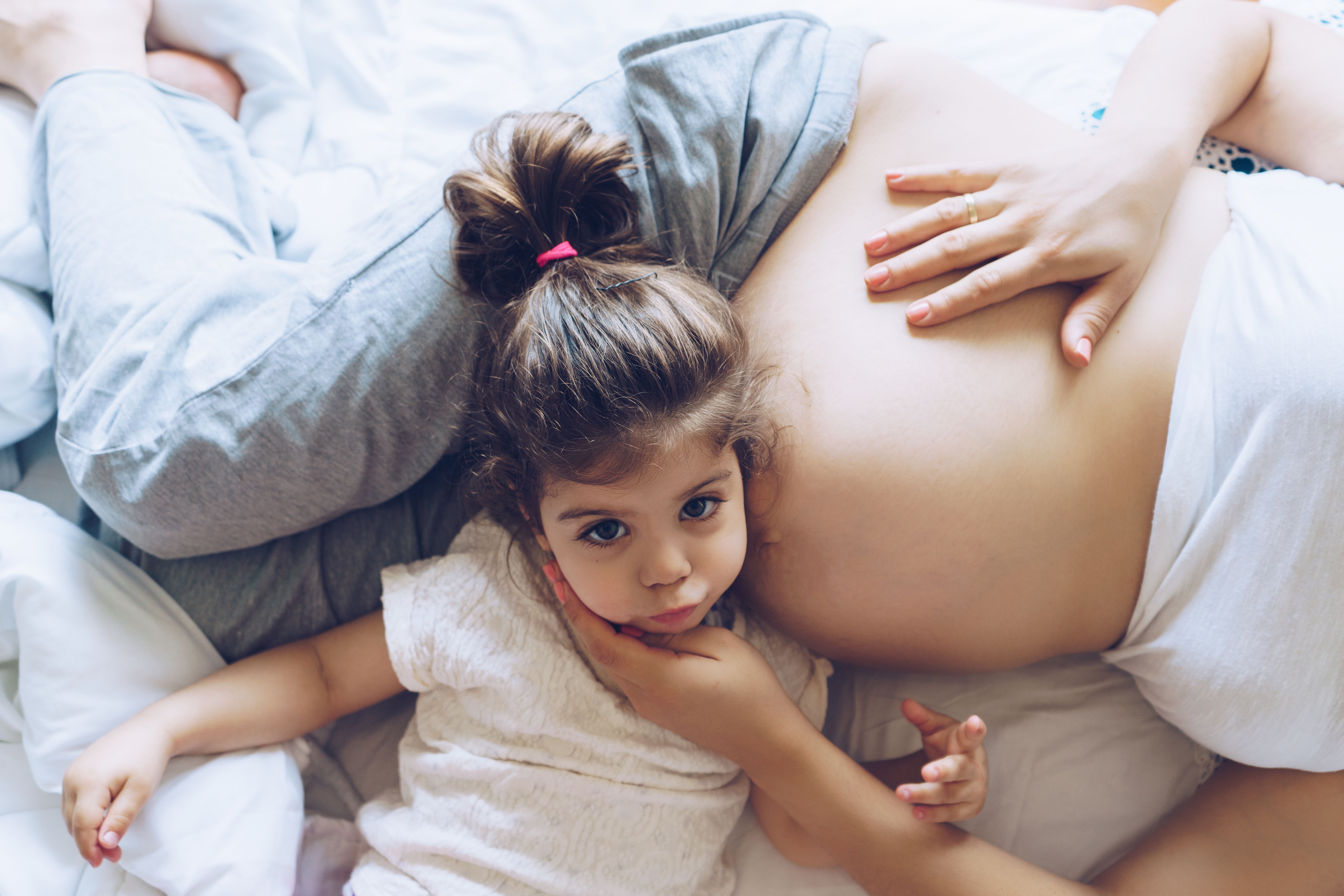Your little one hears their very first sounds at around 18 weeks of pregnancy. While their initial playlist is a mix of airflow and stomach gurgling, your baby’s ears gradually develop to hear voices, noises and tunes by the late stages of pregnancy. As their features continue to grow, your little one becomes more attuned to their environment. But, what exactly do they hear?
When does my baby develop hearing ability?
At week 6 of your pregnancy, the cells of your pea-size embryo begin arranging themselves into unique tissues that will eventually be their brain, face, eyes, nose and ears. By week 9, small indents develop on the side of your baby’s neck, which will gradually move up and become the tiny, button-like ears you’ll gawk over after they’re born.
In your second trimester, your little one begins to detect sounds from within your body. Over the next few weeks, they will hear more and more of the outside world, taking in lawn mowers, barking dogs and your partner’s snoring, and slowly becoming accustomed to their environment. By week 24, babies have even been shown to turn their heads in response to certain voices and noises.
What does my baby hear?
Since the baby is surrounded by amniotic fluid, it’s not exactly Beethoven’s 5th in there. In the initial stages of growth, your little one hears a symphony of digestive sounds, flowing blood and stomach rumbling, along with the steady tune of your heartbeat.
During your pregnancy, the clearest voice your baby will hear is yours. While most of what they hear transmits through the air and then the uterus, the sound of your voice reverberates through your body and bones, amplifying as you speak.
In fact, studies suggest that a foetus’ heart rate quickens at the sound of their mother’s voice. So, while singing, reading or blabbing to your belly may seem senseless, it can actually help your little one get to know your voice.
How does it sound?
Place your hand over your mouth and speak – this is what voices sound like to your baby in the womb. Since they are separated from the world by layers of your body and amniotic fluid, everything your little one hears in utero will sound muffled.
Though the words are unclear, the tone and pitch are prominent. From inside the uterus, low-frequency and deeper sounds are easier to make out than high-pitched ones.
Are loud noises bad for my baby?
Occasional loud sounds are unlikely to harm your baby’s hearing development. However, prolonged exposure to loud noises might cause developmental damage or hearing loss when it is constant or repeated. For instance, if you work in close proximity to loud music, sirens, machinery or crowds, you might consider talking to your boss about transferring to a quieter setting temporarily.
How can I support my baby’s hearing development?
In most cases, the best way to support your baby’s natural development is to continue life as usual. While you may need to make adjustments depending on your work situation, there’s no need to avoid a concert you’ve been anticipating or an especially raucous baby shower.
Despite the tittle-tattle on the street, there is little evidence to support that playing classical music to your baby in the womb can boost his or her IQ or foster their inner Mozart. That said, there’s also no harm in playing your favourite tunes. Whether you’re a classical connoisseur or a blues buff, hearing these sounds in utero may make them less startling to your little one after birth.
For now, read to them, talk to them or croon a lullaby; your voice is music to their ears.



